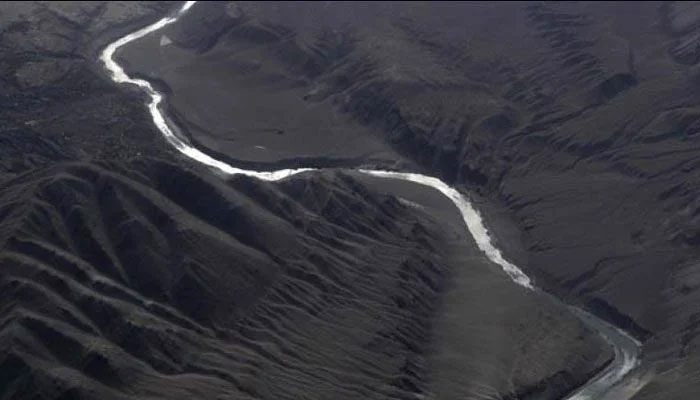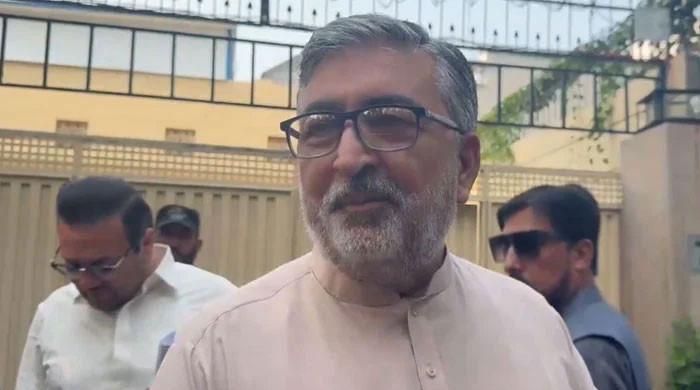Govt to soon restructure Irsa through ordinance
After the restructuring, govt would appoint the chairman of Irsa while its representation will also increase
January 27, 2024

- Irsa officials say this move may trigger controversy.
- Govt representation to increase after Irsa restructuring.
- Irsa consists of 5 members from each province, govt.
ISLAMABAD: The caretaker government will soon be able to restructure the Indus Waters Treaty Authority (Irsa) by introducing amendments to its Act 1992 after which it will be able to appoint the chairman of the water regulator, The News reported Saturday.
The Ministry of Water Resources, with the backing of the Special Investment Facilitation Council (SIFC), has submitted a summary to the cabinet committee for disposal of legislative cases (CCLC) seeking a nod for the issuance of the Irsa ordinance.
“At a time when political activities are gaining momentum across the country, the government has decided to touch the water regulator’s composition knowing the fact that smaller provinces are very sensitive to water issues. So much so political leadership of the lower riparian province is very touchy and cannot afford such changes in the Irsa without their willingness. The proposed changes in the Irsa Act through the Ordinance will serve nothing but increase the footprints of the federal government in the Irsa decision-making on water disputes among the provinces,” the officials of Irsa and provincial irrigation departments told The News.
“This move may trigger controversy at the country level putting the independence of the entity in jeopardy. Without taking the nod from provinces — the main stakeholders of the country in water shares in the Indus basin system, the incumbent regime has decided to incorporate the changes in the Irsa Act to restructure the current shape of the water regulator. This may lead to an unwanted chaotic situation among the smaller provinces,” they added.
After the Irsa gets restructured, the representation of the federal government would increase in Irsa in numbers as in the existing composition of the water regulator. Moreover, the federal government would also appoint the chairman of Irsa.
“If the CCLC approves the summary, then the incumbent regime would bring the Irsa ordinance to enforce the amendments in the Irsa Act and this is how the government would revise the existing composition of the water regulator. The Law and Justice Division has also vetted proposed amendments in the Irsa Act 1992.”
Irsa currently consists of five members, one each nominated by each province and the federal government. However, under the proposed revised composition as per the summary signed by Secretary Syed Ali Murtaza, the prime minister would appoint a serving or retired employee of the federal government in BPS-21 or above as chairman of the Irsa. The chairman will have no voting rights, however, the age limit and tenure duration for the chairman have not been mentioned in the summary.
Nonetheless, the chairman will have powers to review the grievance of any provincial government, any member of the Irsa, or Wapda against the decision of the authority before making any reference to the Council of Common Interests (CCI).
The chairman will also have powers to request the federal government to assist Irsa through the armed forces or other law enforcement agencies for the protection, safeguarding, and securing of any location or installation that has been duly declared to be of strategic importance under the Irsa Act.
“This would increase the footprints of the federal government in Irsa on water issues undermining the independence of the body and national cohesion,” the relevant officials and water experts said.
As per the summary, the copy of which is available with The News, the post of vice chairman will be created. The vice chairman will be from four provincial members for one year on a rotational basis. In addition, an independent water experts committee would be constituted to assist the chairman and the Authority on technical matters.
The Irsa would also be granted powers to proceed against persons and entities involved in water theft, tampering with water data, and other illegal or fraudulent activities as per the law. Independent water experts are of the view that Sindh being a low riparian federating unit is very sensitive to water availability issues as the water is the lifeline for Sindh and Balochistan as well. During Gen (retd) Pervez Musharraf's regime when water scarcity hit the country because of the long-drawn drought, a post of the federal member was created to resolve the dispute between the provinces on water releases.
The federal member used to be appointed from Sindh, but for a long time, the federal member has been from Punjab. Now, if the chairman is appointed from the bureaucracy by the prime minister, then Punjab and the federal government would practically have more representation in the authority which would cause more sense of deprivation among the smaller provinces when it comes to the decision-making.
Currently, in Irsa, the chairman becomes on a rotation basis from four provincial members, but the federal government says that the member appointed by the province is a retired officer and he always advocates for his province’s water interests and when he becomes chairman, he takes the decision which always offends other members and provincial government. However, the fact is that the Irsa members decide on water issues on a majority basis.











